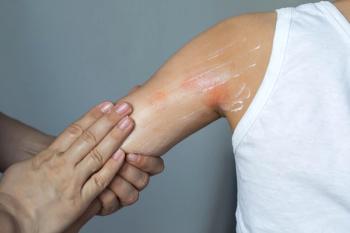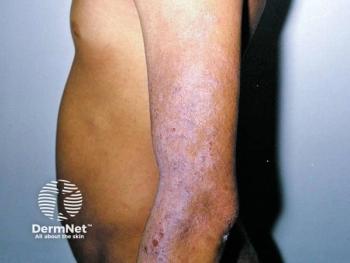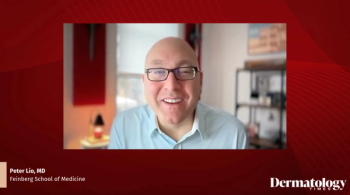
Are we really treating our patients or just their skin disease?
In dermatology, there are myriad diseases that can be affected by emotional aspects and in which coping with the disease is important.
Psychosomatic symptomatology impacting dermatological disease is both an adult and pediatric issue.
For example, for the practicing pediatric dermatologists, at least one in every five children you see will likely have a DSM-IV-TR mental health diagnosis, and an additional two children will be experiencing some psychosocial impairment.
Longitudinal study However, a 15-year longitudinal study recently published, involving 700 dermatology inpatients and outpatients and comparing neurotic factors and psychosomatic complaints in 12 different dermatological diagnostic groups, reported that in seven of these groups, 50 percent or more of patients were affectediv. They concluded that psychosocial factors play a role in many diagnostic groups and must therefore be included in diagnostic and therapeutic considerations of skin diseases in general.
Questions are simple So the questions to you are simple. Are you really treating your patients, or just their skin disease? Are you responding to the psychosocial needs of your patients? Do you find the non-adherent patient frustrating and a burden on your time and energy, or do you ask what factors may be playing a role in the patient not following through on your treatment recommendations? Are you adequately addressing the emotional impact of the skin disease on your patients? If not, do you have referral sources to provide to your patients who will work collaboratively with you and your patients? If the answer to any of the above questions is 'no,' then you are not alone.
We fall significantly behind our European colleagues in addressing the psychological and psychosomatic aspects of skin disease in our patients. But this is changing rapidly in a positive direction.
We need to do more The data supports the notion that every dermatologist now needs to rely heavily on their skills in psychocutaneous medicine. This was reinforced at last winter's American Academy of Dermatology (AAD) conference in Washington, D.C., during a standing-room-only forum on psychocutaneous medicine lead by Richard Fried, M.D., Ph.D. We need to do more for our patients than just treat the disease, and physicians like yourselves are responding to this call.
Research in psychocutaneous medicine in the United States is increasing and informing clinical dermatologists on ways to better recognize and treat their patients with psychosocial impairments or psychiatric overlays, as well as encouraging referring those patients, when warranted, to someone who can work collaboratively with you. However, not every dermatologist has the ability to have a clinical psychologist work directly alongside them in their clinics. So where can you turn?
Newsletter
Like what you’re reading? Subscribe to Dermatology Times for weekly updates on therapies, innovations, and real-world practice tips.












